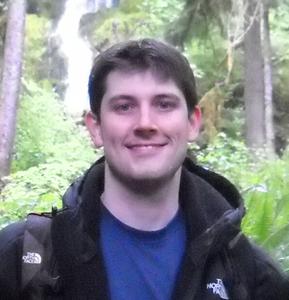ESP Biography
JAMES FITZGERALD, Stanford Physicist and Theoretical Neuroscientist
|
Major: Physics College/Employer: Stanford Year of Graduation: G |

|
Brief Biographical Sketch:
James Fitzgerald is interested in the interface between mathematics, physics, and biology. James completed his undergraduate degrees in physics and mathematics at The University of Chicago, and is now a graduate student in Stanford's Physics Department. James' early research concerned protein structure and dynamics. Now he is combining his love of theoretical physics and biology by studying theoretical neuroscience. James' neuroscience efforts are concentrated in two broad areas: understanding the computational principles underlying perception and deconstructing the neuronal correlates of learning and memory. Past Classes(Clicking a class title will bring you to the course's section of the corresponding course catalog)B2156: The Miracle of Taste in Splash! Spring 2012 (Apr. 21 - 22, 2012)
How do we taste? Why is sweet 'sweet' and sour, well, 'sour'? In this class we'll delve into the science of taste - how taste buds work and how chemical reactions going on in our mouth get sent to the brain. Along the way we'll eat things, eat things blindfolded, and consume 'miracle berries', which turn your tastebuds upside down and turn sweet to sour, sour to sweet.
B1493: The Neurobiology of Learning and Memory in Splash! Spring 2011 (Apr. 16 - 17, 2011)
Considering that you registering for Splash, your ability to learn is probably important to you. But have you ever wondered what learning and memory means scientifically? In this course, I will discuss the science of how people, and other animals, learn.
B1494: Statistics and the Brain in Splash! Spring 2011 (Apr. 16 - 17, 2011)
Your brain is continually flooded with information, some of which is useful, and some of which is not. How does the brain make sense of it all? A major goal of statistics is to extract relevant information from mountains of data, so it should not be too surprising that neural processing connects to the mathematical theory of statistics. I will discuss this connection using examples drawn from diverse topics including perception and neural coding.
S837: The Neurobiology of Learning and Memory in Splash! Spring 2010 (Apr. 17 - 18, 2010)
Considering that you registering for Splash, your ability to learn is probably important to you. But have you ever wondered what learning and memory means scientifically? In this course, I will discuss the science of how people, and other animals, learn.
S839: Statistics and the Brain in Splash! Spring 2010 (Apr. 17 - 18, 2010)
Your brain is continually flooded with information, some of which is useful, and some of which is not. How does the brain make sense of it all? A major goal of statistics is to extract relevant information from mountains of data, so it should not be too surprising that neural processing connects to the mathematical theory of statistics. I will discuss this connection using examples drawn from diverse topics including perception and neural coding.
S268: The Neurobiology of Learning and Memory in Splash! Spring 2009 (Apr. 04 - 05, 2009)
Considering that you registering for Splash, your ability to learn is probably important to you. But have you ever wondered what learning and memory means scientifically? In this course, I will discuss the science of how people, and other animals, learn.
What is Theoretical Biology? in SPLASH (2008)
I hope that through this course, you will be exposed to an exciting side of the biological sciences that you ...
|
|
